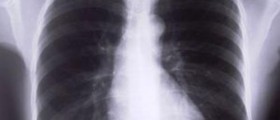
Tysabri (Natalizumab)
Tysabri is a medication used in treatment of multiple sclerosis (MS). This drug is actually a monoclonal antibody, which affects the immune system. It is designed to attack only damaged cells in the body, which protect the healthy tissue.
This medication is also used in Crohn’s disease, after some other treatment has failed to give satisfying results.
Warning
Tysabri is available only to selected patients in TOUCH Prescribing Program. Te be in the program you must be approved, and every time you need another dose of the medication you will be interviewed, to be sure you make the necessary requirements. Patients using Tysabri are supposed to have regular checkups at the doctor every 3 to 6 months. It is important not to miss any of these appointments.
This medication may cause severe brain viral infection, which might lead to death. Weaken immune system and use of some medications are the risk factors for developing the infection. Therefore, any change in your mental status and vision, walking or speech problems should be reported to your doctor. Some symptoms need to be reported to the doctor, whenever they appear. These include fever, sore throat, cough, redness, swelling or pain, and also nausea, abdominal pain, appetite loss, change in urine color, and yellowing of your eyes or the skin.
Adverse Effects
Patient using Tysabri often experienced depression and suicidal ideas. Other nervous system side effects include frequent headaches, dizziness, sleepiness, syncope, tremor and vertigo. There were also cases of the condition called progressive multifocal leukoencephalopathy (PML).
Skin problems are rarer, usual symptoms are rash, dermatitis and pruritus. Some patients reported perianal abscess, dry skin, night sweating and urticaria. Allergic reactions to Tysabri might cause acute hypersensitivity or even anaphylactoid reaction and anaphylaxis. These symptoms usually disappeared once the Tysabri infusion was stopped.
Using this medication might provoke other infections. Patients have reported herpes, tonsillitis, viral infections, pneumonia and allergies. Some of the patients develop antibodies to the drug, which significantly lower the efficiency of Tysabri.
Respiratory tract infections are frequent, including both upper and lower respiratory tract.
Cardiovascular side effects of Tysabri are usually peripheral edema and pericarditis.
Tysabri treated patients often suffer from nauseous feeling, diarrhea or constipation, gastroenteritis, tooth problems, and abdominal pain and gases. Rarely, there were cases of stomatitis, cholelithiasis and abdominal adhesions.
Frequent symptoms include infections of the urinary tract and vagina, menstrual irregularities, urinary incontinence and ovarian cyst.
Patients might experience pains in the joints and muscles, swelling of the joints, muscle cramps and back pain.
Tysabri might affect the liver and cause abnormal liver function. It could also affect your weight, and there have been reports of weight gain and weight loss.

















Your thoughts on this
Loading...